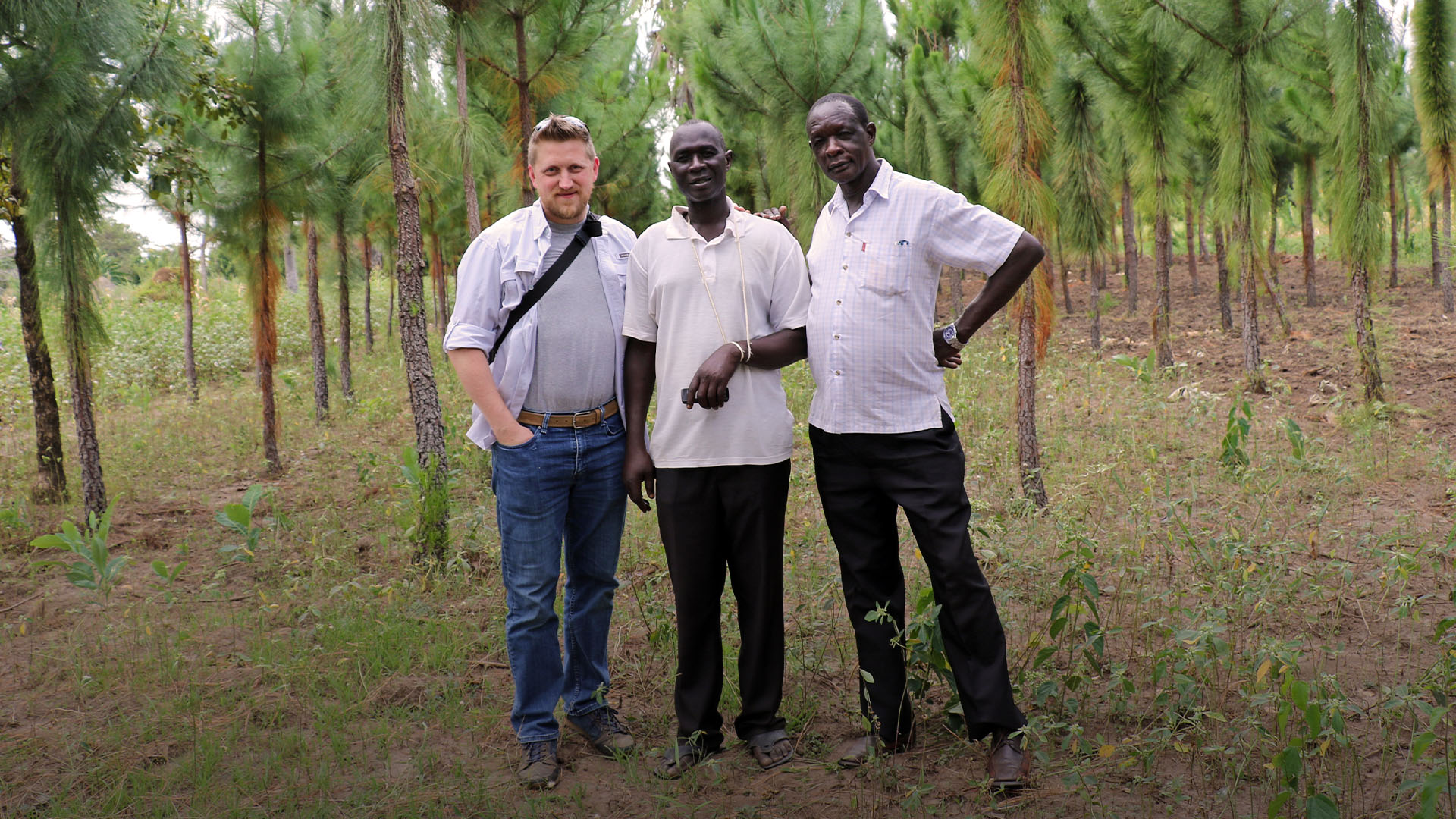Our mission is to raise up leaders to champion God’s kingdom in the darkest corners of the world.
John Kotter and Dan Cohen wrote a deeply biblical truth in their secular book on leadership, The Heart of Change: “The idea of one hero who figures it all out himself is increasingly a myth. A team is needed that has the right people, a commitment to the hard task, and the capacity to work together well.”
Jesus Christ, the only person in human history with genuinely no need for mortal company, went out of his way to pick 12 individuals and disciple them into godly leaders. Out of those, he built any even closer ring of three whom he trained to guide the church after he was gone.
The Son of God could have worked alone but chose not to. Instead he taught others and then handed a vital role in heaven’s work over to them. In doing so, he gave us a model to follow with one another.
We believe in bringing long-term poverty solutions through discipleship to those caught in economic depression and spiritual darkness.
In Uganda alone, our partners have helped 180,000 people escape poverty over a 10-year period. These teams are almost entirely run by locals.
Our Work in Seven Steps
Step 1: Find Champions of Change
Often frustration encourages people to minimize or ignore problems because they feel unable to change anything. We look for the people who are honest about the urgency and seriousness of the issues they face. They will go to great lengths to champion change for their people.
Step 2: Build a Solid Team
Change always happens within the context of community. Without the support of others, even the most ardent champion will inevitably falter. We gather champions as well as those who are willing to support them. We are always stronger together.
Step 3: Find the Unifying Vision
For believers, we have a unifying belief in Christ and many similar values from the Bible. That said, it’s important to regularly remind people of the truths that we all agree to, especially when they’re on the road to change and obstacles start to eclipse their vision.
Step 4: Empower Action
As Kotter and Cohen point out in their book, “The issue here is removing obstacles, not ‘giving power.’ You can’t hand out power in a bag.” By giving future hope experts information, lessons and training, we share with them the necessary tools to overcome hurdles that stand between them and their goals.
Step 5: Celebrating Short-Term Wins
Change is a process. It’s easy to become disheartened when a revolutionary vision isn’t immediately realized in the community. Helping newly trained hope experts to set stepping-stone goals for themselves and celebrating those smaller achievements fends off discouragement and cultivates longevity.
Step 6: Hope Experts Don’t Give Up
Emotional barriers, lack of community buy-in, personal exhaustion or team conflict are not insignificant trials for hope experts in the field. Walking alongside them through these difficulties builds their confidence that God has equipped them to overcome.
Step 7: Making the Change Last
Introducing people to God and his transformative work or reshaping their view of God’s desires for their lives will help them resist the pull of old habits, family traditions and secular culture. In addition, local hope experts learn to identify more champions and train these individuals themselves, starting at step one.
Our Hope Experts in the Field
Pastor Philemon, one of our long-time partners, is currently working with several churches to bring peace and unity between three African tribes that have traditionally fought one another. As he mused on the situation, he said, “We really appreciate how you pray and support us to do ministry and win many to Christ.”
Asalina sees the full spectrum of needs and trials as World Challenge’s field coordinator traveling between sub-Saharan regions and training new hope experts. She pointed out the vitality of this work: “You are making it possible for people in remote areas of Kenya, living in very inhospitable, sometimes hostile and certainly dangerous areas, to serve God and hold on to a hope in Christ.”
“Before the program started in our community, a lot of us had a poor conception of how to live…” shared hope expert Lakil in Haiti, describing how World Challenge trainers came to his village. “Slowly, people’s consciousness were pricked, and they began to accept Christ, starting to integrate their lives into the work of the church and forming small group Bible studies. All of this helped them to have love for God and their neighbors.”
The success of our teams only happens with the leading and power of the Holy Spirit and the persistence of our partners worldwide. We are always praying for God to bring up more local champions and future hope experts to be his hands and feet in the world.
This critical work is also made possible by the generous contributions of individuals like you who believe in World Challenge’s mission.
Please know that you are a blessing not only to us but to ministry leaders around the globe. Thank you!
